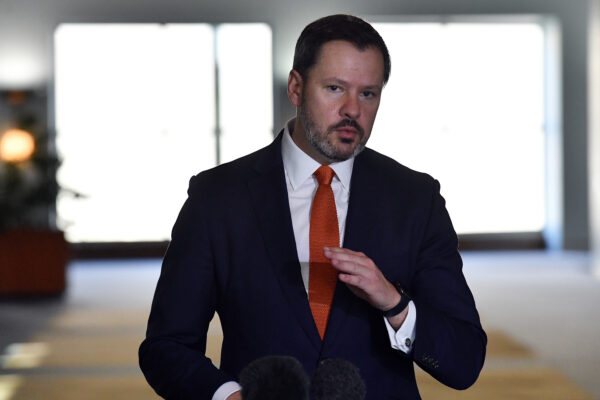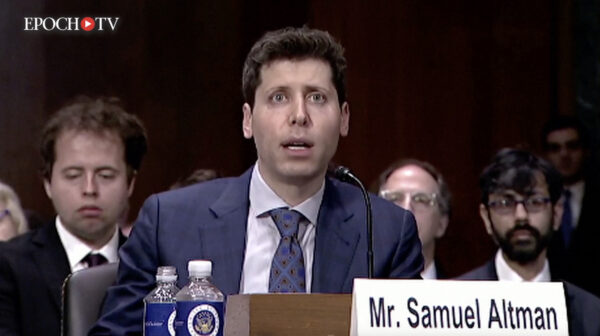High-risk artificial intelligence technology (AI) may soon be banned in Australia after the federal government announced it will move to establish guardrails around its growth.
Minister for Industry and Science Ed Husic said that despite AI now being a prevalent part of people’s lives, he said there was a demand for some sort of regulation from the community.
“The Albanese government wants to basically set up the next reforms that can give people confidence that we’re curbing the risks, maximising the benefits, and giving people that, as I said, that assurance that the technology is working for us and not the other way around,” Husic told ABC radio on June 1.
Australia has close to a dozen different laws and codes of conduct that, in one way or another, pertain to the impact of AI technology, but there are concerns AI’s growth is outstripping the framework.

“We want to make sure that Australia has got a fit-for-purpose regulatory regime when it comes to AI, particularly what we’re seeing around generative AI. And again, the aim is to give people confidence that we are curbing the risk and maximising the benefit of new technology,” he said.
“We want to invite not just people that are involved in technology, but we want the broader public and others to have their say as well,” he said.
The minister said the broader public was also invited to take part in the consultation around new regulations, with the government releasing two papers on the matter.
The “Safe and Responsible AI in Australia” discussion paper (pdf), which showcases the existing regulatory and governance responses in Australia and overseas, identifies potential gaps and proposes several options to strengthen the AI framework.
Another paper from the National Science and Technology Council, the Rapid Response Report: Generative AI report, assesses potential risks and opportunities in relation to AI.
Tech Industry Welcomes the Move
The Australian Academy of Technological Sciences and Engineering (ATSE) has welcomed the government’s discussion paper calling it a critical step to safeguard society.
ATSE, which comprises over 900 of Australia’s leading technologists, engineers, and applied scientists, said despite its enormous benefits, Australia needed to mitigate any potential harms.
Kylie Walker, CEO of ATSE, said Australia could become a global leader in responsible AI and an early adopter of AI Ethics Principles.
“This is a critical national conversation, and we welcome the government’s leadership in facilitating it,” she said in a media release on June 1.
“We must focus on both the opportunities and the risks of widespread adoption; the scope and adequacy of national planning and policies; the fitness of legal and regulatory approaches; and the implications of increasing geopolitical competition and geo-specific regulation in AI-related technologies and industries.”

Walker also called on the federal government to examine the significant environmental cost of these technologies, in particular, the tremendous power and water requirements that are needed to power AI use.
“We need to ensure data is used ethically and follows the principles of privacy and security, as well as being mindful of Indigenous data sovereignty,” said Walker.
Warnings About AI Grow
The move by the Australian government comes after Sam Altman, the CEO of OpenAI, petitioned U.S. lawmakers to regulate the technology, particularly the advancements made in developing the advanced chatbot ChatGPT.
Altman, who appeared at a recent hearing before the U.S. Senate Committee on the Judiciary, highlighted both the possibilities and potential pitfalls of the cutting-edge technology.
“I do think some regulation would be quite wise on this topic,” Altman said. “People need to know if they’re talking to an AI if the content they’re looking at might be generated or might not.”








